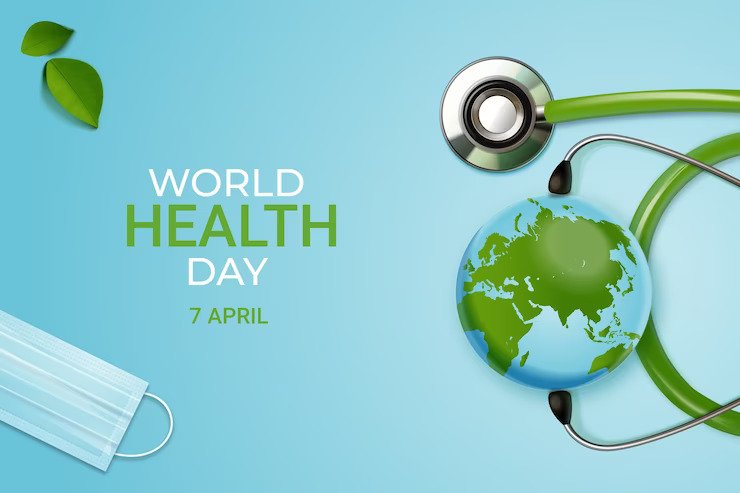7th April is celebrated each year by the World Health Organization as World Health Day. The aim of this day is to create awareness on a specific topic. This year the theme is ‘Building a fairer, healthier world for everyone’. To throw light on building healthy habits, we have an eminent Nutritionist who is also one of the advisory members of NutriKonnect — Dr Suneeti Khandekar. To her credit, she holds the degree of MBBS, PGD (Clinical Nutrition and Diet Therapy), MBA (Hospital Administration).
Life is not fair — many may relate to this phrase, particularly with reference to the ongoing COVID-19 pandemic. There always exists an imbalance in nature towards many things such as, some people are privileged and have access to better facilities such as education, food, housing and health care; while some have to struggle for it. As the world struggles to strike a balance, it is important to note that change should begin at personal level to build a fairer world.
With the hope that covid-19 pandemic may have brought an awakening within us to shun some unhealthy habits; we hereby present 7 healthy habits to build a better world for mankind:
1. Avoid food wastage
Poor nations have been grappling with hunger while the rich nations have minimal sensitivity towards this. Lack of food and fresh water has been a leading cause of death in children belonging to poor nations. Food waste needs to be consciously avoided with 2 basic rules in mind – ‘cook only as much as you need’ and ‘donate the extra’ . This is one of the most healthy habits we need to inculcate into the younger generations in order to save scores of children dying due hunger.
2. Save water
Bringing in technology for a better access to safe, potable drinking water and saving every drop of rainwater through rainwater harvesting can save the world from chaos due to unhygienic water.
Conscious efforts need to be made by every individual to save every drop of water. Shut the tap while brushing your teeth. Channelize household waste water to gardens to water plants. Reuse waste water for washing vehicles and in vehicle industries.
3. Do not pollute air
Several cities in India had attained much better Air Quality Index (AQI) during complete lockdown and if we have to breathe the same fresh air, we have to bring a change. With the unlocking process, the quality of air again started getting deteriorated. This needs to be tackled diligently. Merely making stricter emission norms will not solve the situation.
Carpooling, bicycles or even walking – prove to be healthy habits to curd this demon. With the advent of electric vehicles, we need more and more people to switch to them in order to avoid harmful emissions. Also, following the air pollution control norms by the industries is a must. If we regulate the temperature our AC’s to more than 25°C, that may help in reducing harmful emissions and thereby create a healthy atmosphere.
4. Better sanitation facilities
Our country has been fighting open defecation since ages and while authorities have been working at forefront to tackle this issue; it is not only their job, it is ours too. It is our job to discourage open defecation near and around us in order to prevent spread of diseases.
5. Gender and racial equality
A recent report from the World Economic Forum stated that globally, it will take 99.5 years to close the gender gap (2020 report).
If we have to ride a thousand miles, we cannot do it with one flat tyre. Similarly, we cannot run a society with a skewed male to female ratio. Also, the existing females should get the equal treatment in terms of food and nutrition, education, housing, living and healthcare facilities.
6. Better healthcare for all
There needs to be more involvement of technology in the overall medical management from diagnoses to treatments. Preventive aspects of health care like vaccination, cold chain maintenance, availability and distribution of medicines, telemedicine facilities for specialist support in rural and distant areas.
Till the time government funding on healthcare becomes adequate, charity, philanthropy, and subsidy remain the key factors for better reach of health care facilities in inaccessible areas.
7. Plant trees and conserve nature
If we want our future generations to breathe free and fresh air, we need to take action TODAY. With the growing amount of urbanization, deforestation is one of the major consequences. To deal with these consequences, we and our generations will have to pay the price. Who would wish to pay the price at the cost of his own health? NONE! But we are doing it, currently. Hence, if we wish to give fresh air to our future generations, we need to build this healthy habit of planting trees TODAY.
On this World Health Day, all of us should pledge to make a conscious effort of working towards at least one of the above healthy habits. We should all stand united to dissolve our boundaries and barriers and work towards a fairer, healthier world.
Let us follow these healthy habits to take our journey from carelessness to consciousness for a better tomorrow.
To avail nutrition plan services from Dr Suneeti Ashwinikumar Khandekar



